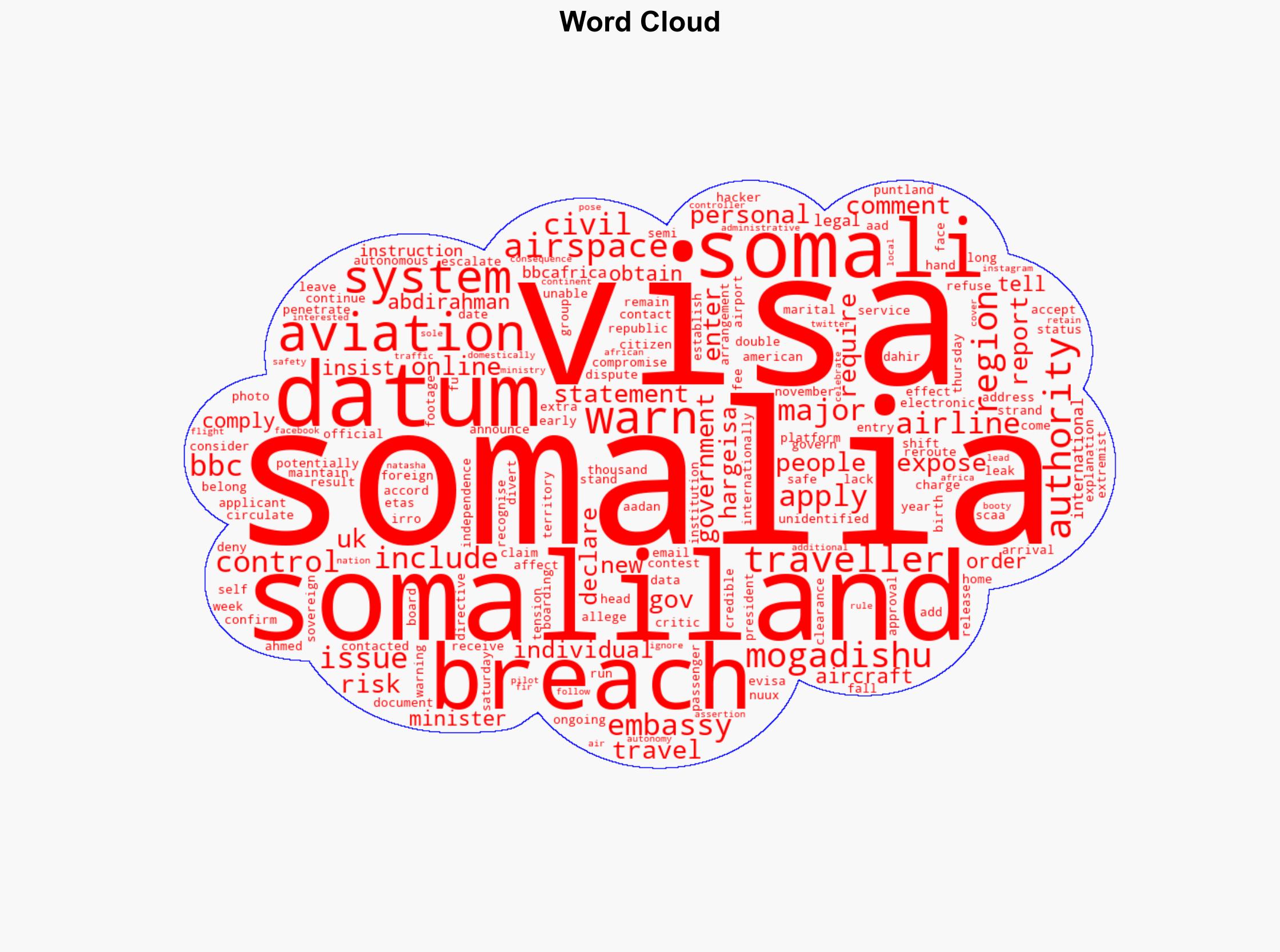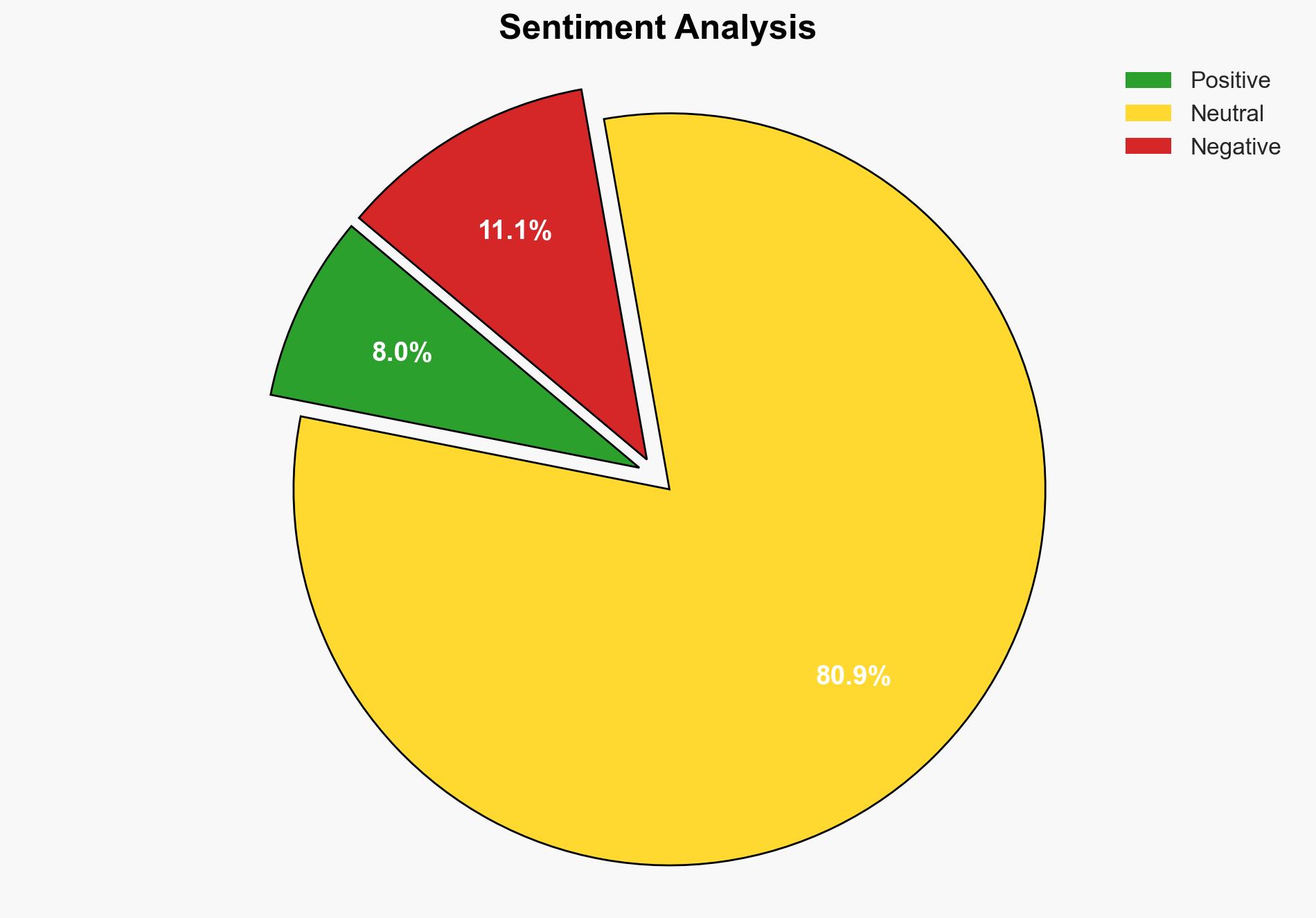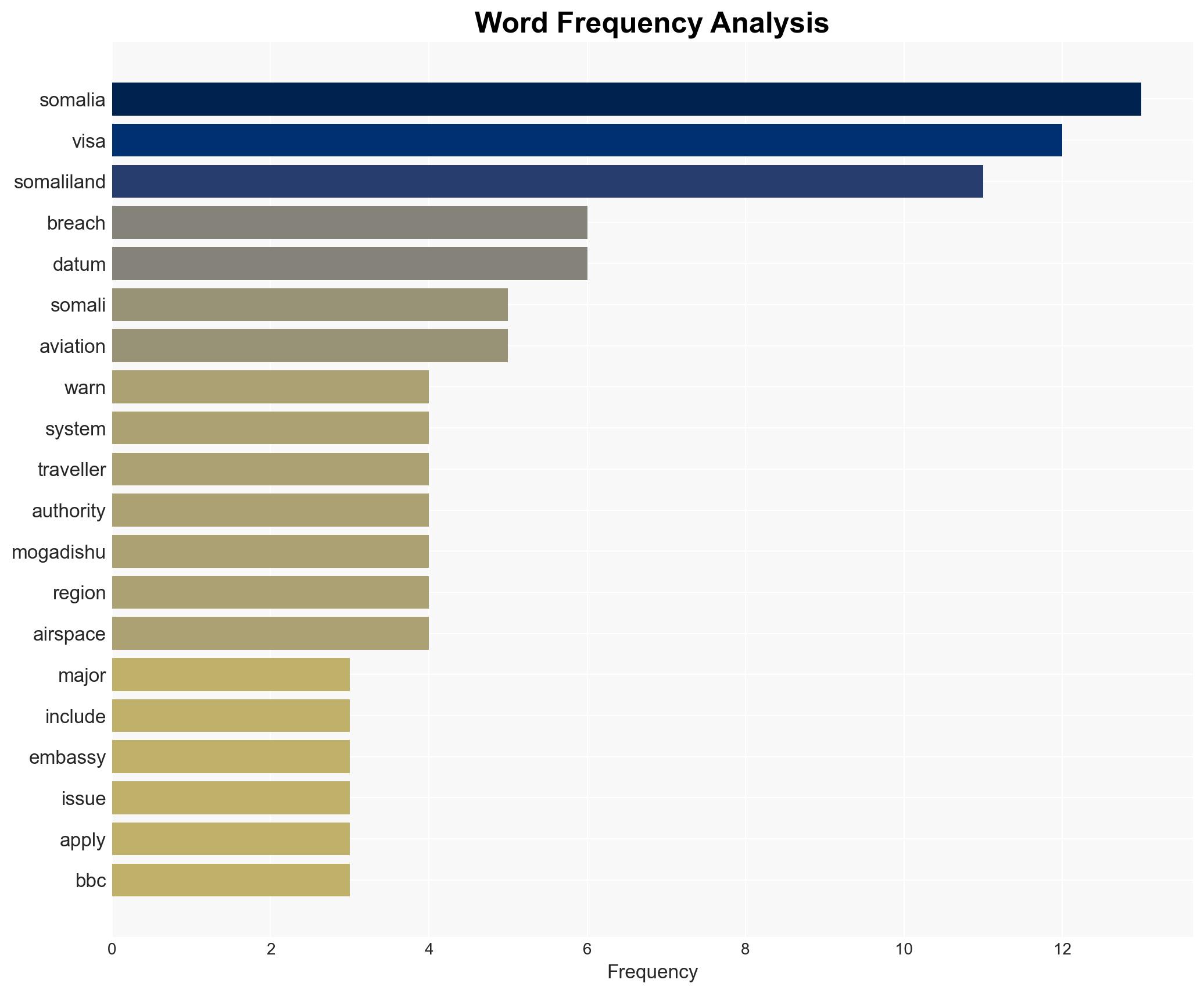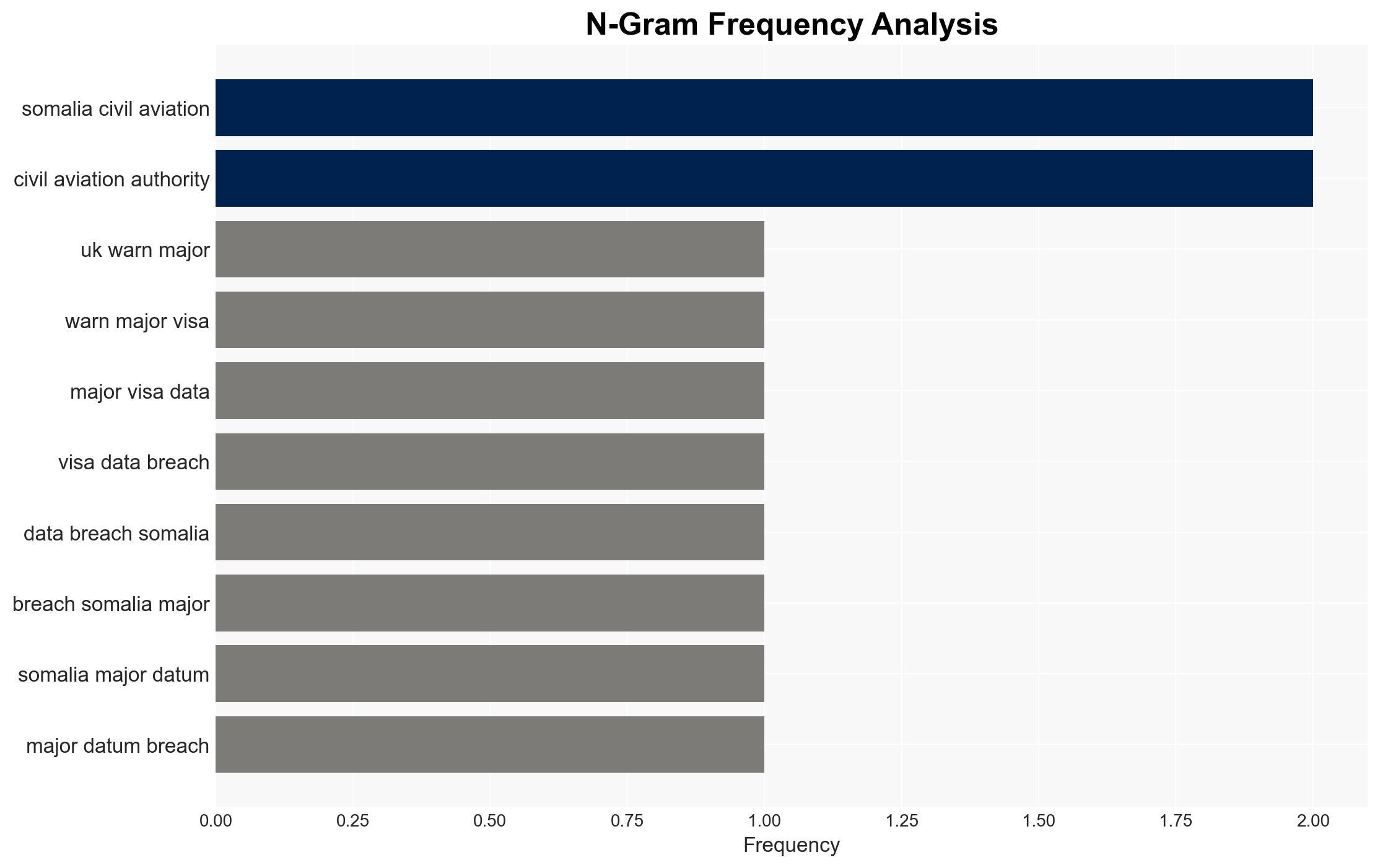US and UK warn of major e-visa data breach in Somalia – BBC News
Published on: 2025-11-15
AI-powered OSINT brief from verified open sources. Automated NLP signal extraction with human verification. See our Methodology and Why WorldWideWatchers.
Intelligence Report:
1. BLUF (Bottom Line Up Front)
There is a high likelihood that the e-visa data breach in Somalia is a result of either a sophisticated cyber-attack by an external actor or a failure in internal security protocols. The breach poses significant risks to personal data security and regional stability, particularly affecting diplomatic relations and aviation safety. Immediate actions should focus on enhancing cybersecurity measures and diplomatic engagement to mitigate potential exploitation of the compromised data.
2. Competing Hypotheses
Hypothesis 1: The data breach is the result of a sophisticated cyber-attack by an external state or non-state actor aiming to exploit personal data for espionage or financial gain.
Hypothesis 2: The breach occurred due to internal security failures within the Somali government’s e-visa system, possibly exacerbated by inadequate cybersecurity infrastructure.
Hypothesis 1 is more likely given the strategic value of the data and the geopolitical tensions in the region, which could motivate external actors to engage in cyber-espionage. However, the lack of robust cybersecurity measures in Somalia also supports Hypothesis 2.
3. Key Assumptions and Red Flags
Assumptions: It is assumed that the breach is ongoing and that the compromised data is accurate and complete. There is also an assumption that the Somali government lacks the capacity to fully secure its digital infrastructure.
Red Flags: The lack of a detailed response from Somali authorities and the potential for misinformation or disinformation campaigns by interested parties to exploit the situation.
4. Implications and Strategic Risks
The breach could lead to increased cyber threats targeting individuals whose data has been compromised, potentially including identity theft and financial fraud. Politically, the breach exacerbates tensions between Somalia and Somaliland, particularly concerning airspace control and visa regulations. Economically, it may deter international travel and investment in the region due to perceived instability and security risks.
5. Recommendations and Outlook
- Actionable Steps: Enhance cybersecurity measures in collaboration with international partners, conduct a thorough investigation to identify the breach’s origin, and engage in diplomatic efforts to address regional tensions.
- Best Scenario: The breach is contained, and data security is restored, leading to improved regional cooperation on cybersecurity.
- Worst Scenario: The breach leads to widespread exploitation of personal data, escalating regional tensions and undermining international confidence in Somali governance.
- Most-likely Scenario: The breach results in moderate exploitation of data, prompting increased international involvement in Somali cybersecurity efforts.
6. Key Individuals and Entities
Somaliland President Abdirahman Irro, Somaliland Foreign Minister Abdirahman Dahir Aadan, Somaliland Civil Aviation Minister Fu’aad Ahmed Nuux.
7. Thematic Tags
Structured Analytic Techniques Applied
- Cognitive Bias Stress Test: Expose and correct potential biases in assessments through red-teaming and structured challenge.
- Bayesian Scenario Modeling: Use probabilistic forecasting for conflict trajectories or escalation likelihood.
- Network Influence Mapping: Map relationships between state and non-state actors for impact estimation.
Explore more:
National Security Threats Briefs ·
Daily Summary ·
Support us
·





